Residents exchanged their plastic waste for tree saplings in Mokokchung town.
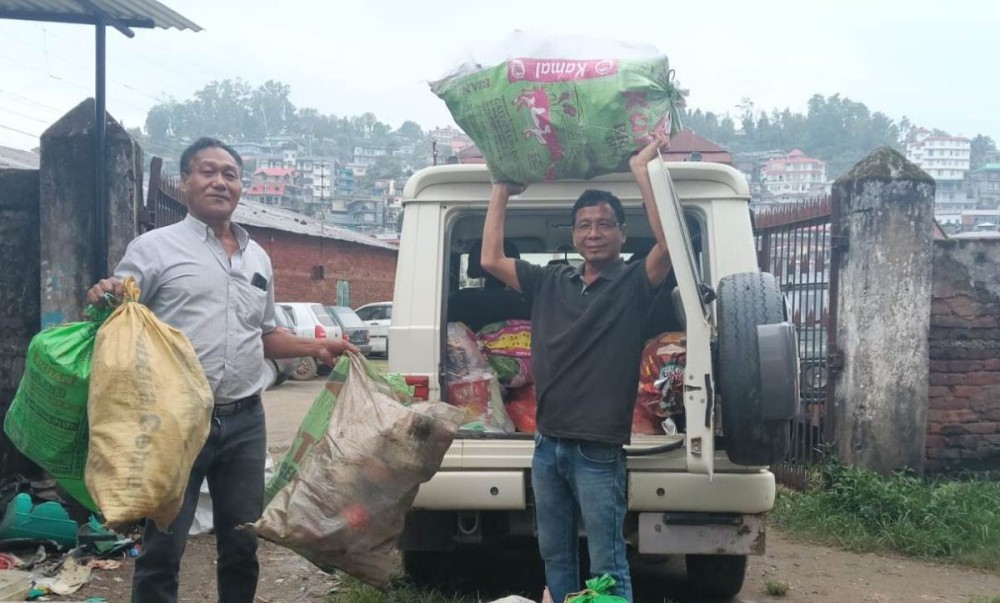
* Forest Dept, MMC spearhead unique campaign to promote green Mokokchung
* Over 1,900 kg of plastic waste collected & exchanged for 1 lakh saplings in five days
Morung Express News
Mokokchung | June 4
In a first-of-its-kind initiative in Mokokchung, plastic waste turned into green hope during a five-day campaign led by the Forest Department in collaboration with the Mokokchung Municipal Council (MMC), as residents exchanged their plastic waste for tree saplings.
Titled “Trade Waste for Green Mokokchung” and themed “Let’s Beat Plastic for a Green Mokokchung,” the campaign aimed to connect two pressing environmental priorities—plastic waste reduction and reforestation—by encouraging public participation.
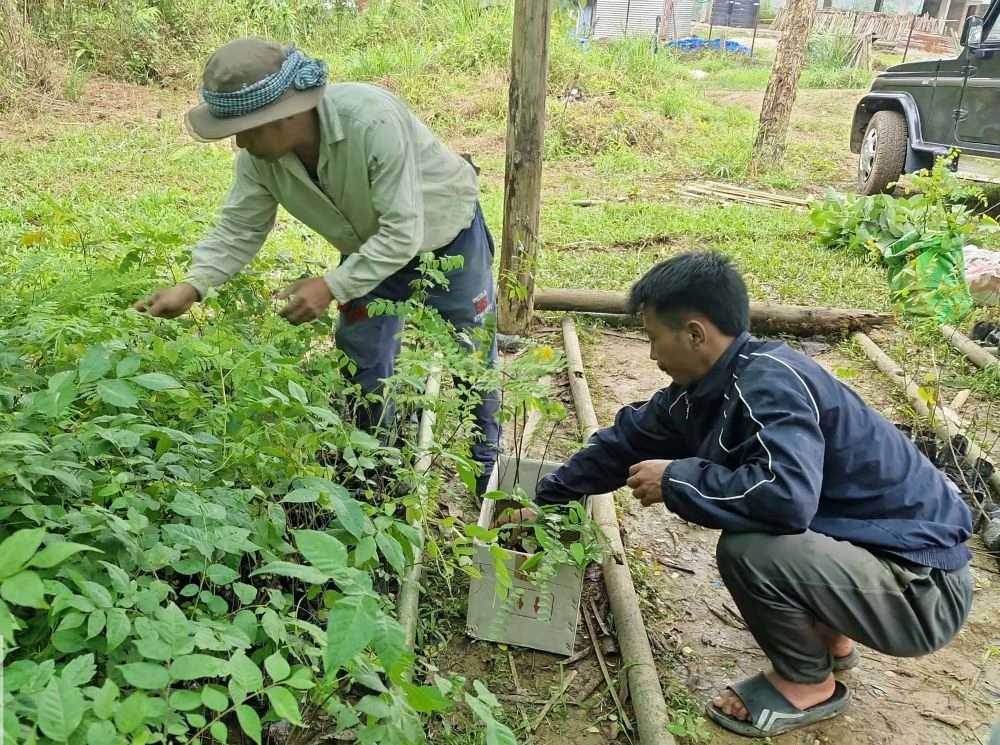
“This year’s global theme is ‘Beat Plastic Pollution,’ and we wanted our approach to go beyond symbolism,” said Dr Sentitula, IFS, Divisional Forest Officer (DFO), Mokokchung. “Everyone wants to plant trees on Environment Day, which is good—but we asked ourselves: how can we justify planting trees while polluting the soil and air with plastic? If we clean up our land first and then plant trees, the act becomes far more meaningful.”
The concept of exchanging plastic for saplings, she added, was rooted in community ownership and circular economy principles. “We must stop waiting for someone else to clean up after us. This initiative was born from the realization that we—the people—must take responsibility,” she said.
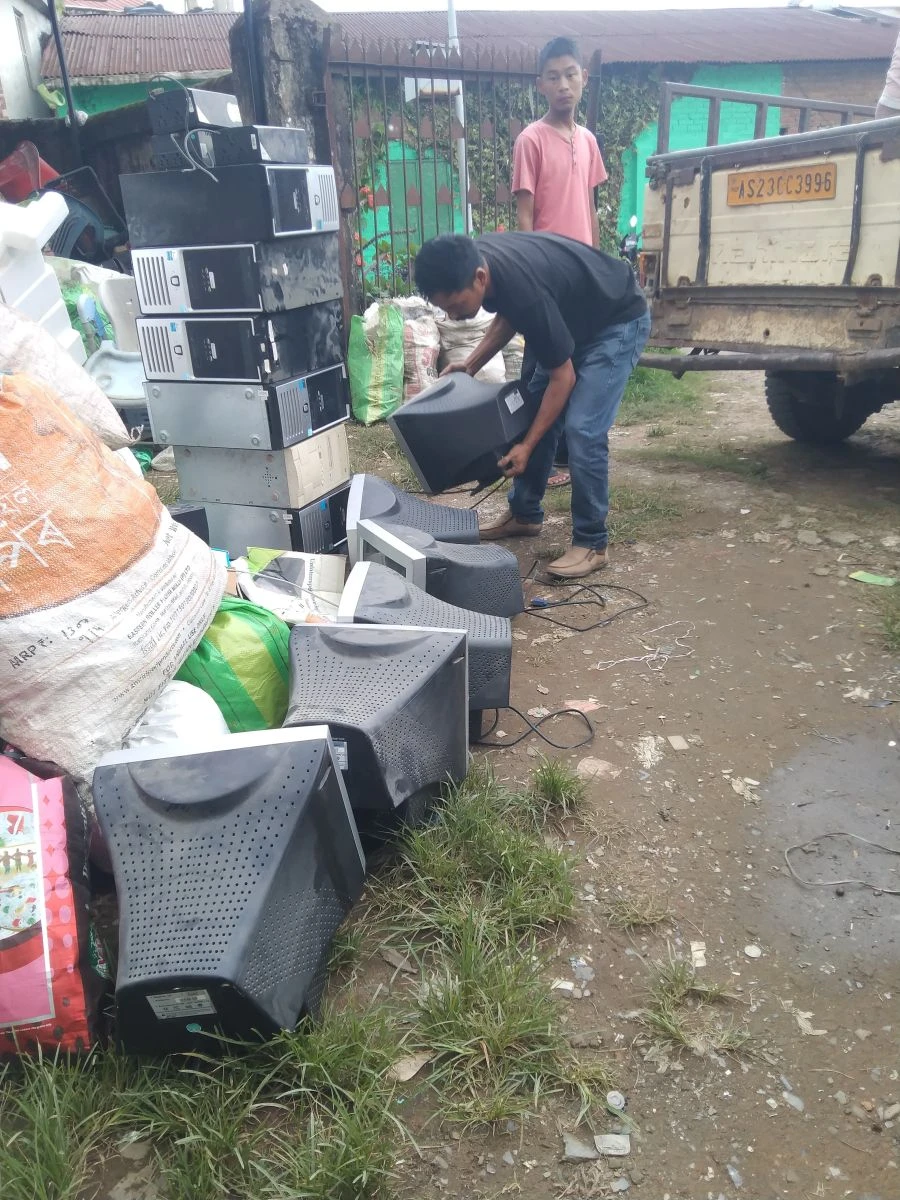
The campaign witnessed enthusiastic participation from schools, local bodies, residents, and government departments. The initial goal was to plant 1 lakh saplings and collect approximately 1.5 to 2 tonnes of plastic waste—the town’s average monthly plastic output.
“We’ve reached our sapling target, though we’re still tallying the exact numbers,” the DFO said. “As for the waste, we collected nearly two tonnes in just five days.”
.webp)
The saplings included flowering, fruit-bearing, and timber species to promote biodiversity. “People often prefer monoculture plantations like agarwood. But biodiversity is critical. That’s why we offered a range of species—to enhance ecological balance and avoid chasing short-term commercial gains,” she noted.
According to Kilepchiba, Sanitation Inspector of MMC and in-charge of the Municipal Material Recovery Facility (MRF), the drive collected exactly 1,983.8 kilograms of plastic waste. Among contributors, Salangtem Ward led with 600 kg, followed by the Cooperative Society (400 kg) and Queen Mary Higher Secondary School (118 kg).
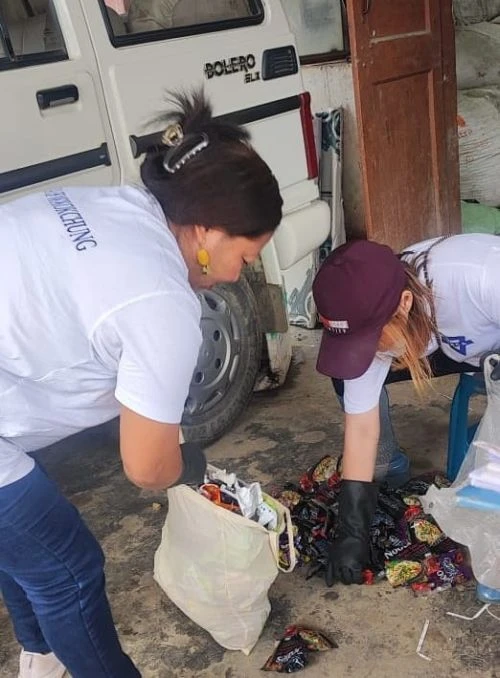
The waste will be stored at the MRF until it accumulates into a truckload and sent to recycling facilities in Assam, as Mokokchung lacks its own plant.
Kilepchiba stressed that the more meaningful impact was the shift in public mindset. “This has been a long-cherished dream—seeing every ward take ownership of their waste. Now, households pay for trash collection, and every ward functions independently. That’s real progress.”
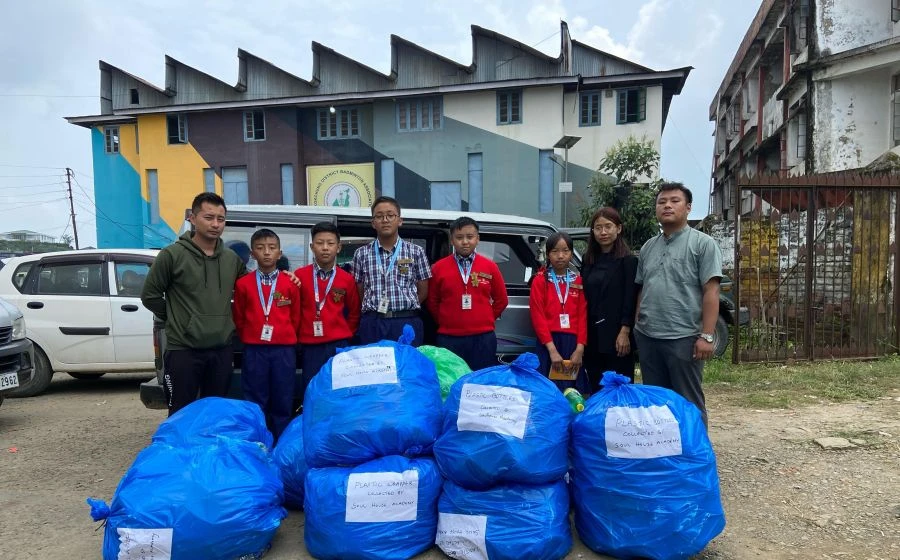
However, challenges remain. “Many investors are ready to build recycling units, but land—mostly community-owned by villages and clans—is not readily available for waste-related use,” he said.
He also acknowledged inconsistencies in fee structures across wards. “In far-flung wards, people compost wet waste on their land and pay less. In town areas with less space, more waste is generated—so they pay more. It’s complex, but we’re navigating it.”
Dumping Site Concerns
The district’s main dumping site—located on the outskirts of Mokokchung village—has long drawn complaints over foul odours, flies, and pollution. Landowners have now issued a relocation notice, prompting negotiations.
“We approached them, and their demands are reasonable,” Kilepchiba said. “They want a protective wall, fly control, and improved road access. These are being worked on, and we’re hopeful of an amicable resolution.”
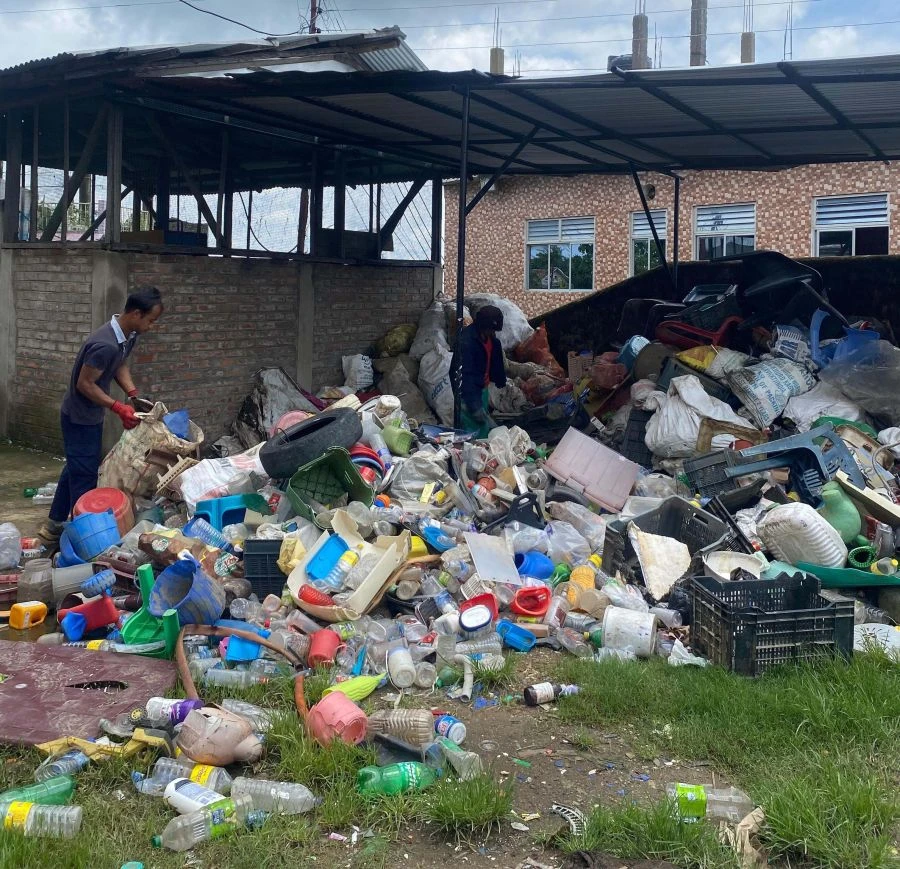
Looking ahead, the Forest Department envisions Mokokchung transitioning toward a zero-waste, circular economy—taking inspiration from Sikkim, Odisha, and even Sweden’s waste-to-energy model.
“There’s no reason we can’t turn waste into wealth,” said Dr Sentitula. “If we can collect, process, and reuse waste efficiently, we not only protect the environment but also create jobs and empower communities.”
She urged citizens to view environmental stewardship as an intergenerational duty. “The environment doesn’t belong to us—we’ve borrowed it from our children. The only way to repay that debt is by working together, taking responsibility, and protecting what we’ve been given.”
Though the campaign coincided with World Environment Day, the DFO emphasized that it was only a beginning. “This should be our launchpad. From here, we want citizens to carry the momentum forward. If we build on this, there’s no reason Mokokchung can’t become a model zero-waste district,” she said.






